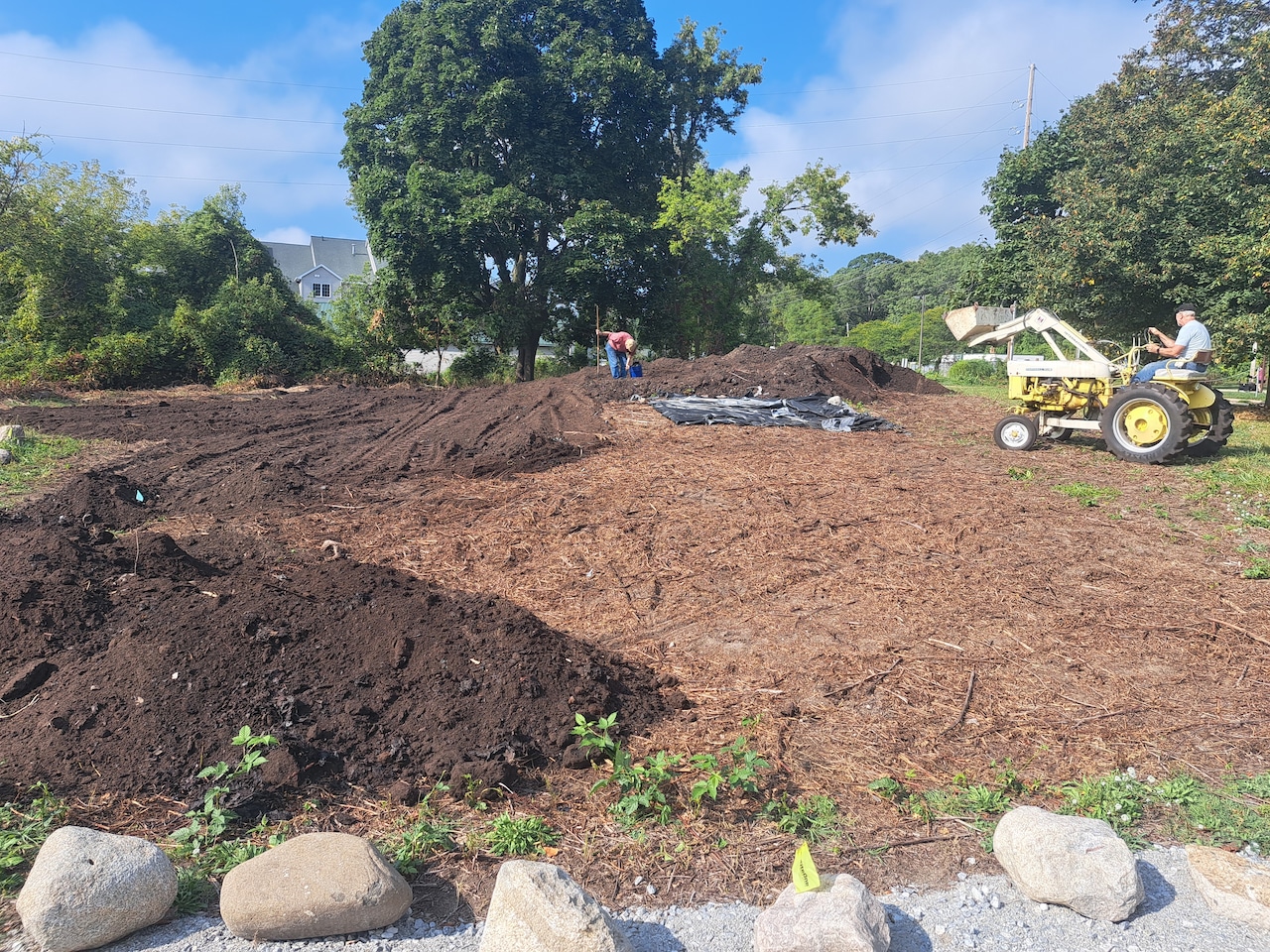
NORTH MUSKEGON, MI – The Muskegon Lake Nature Preserve will soon have a micro forest in progress.
The popular hiking, fishing, biking and birdwatching destination is situated along the Muskegon River in North Muskegon. It features a quarter-mile boardwalk along the river, called The Wilder River Walk.
The beginnings of a micro forest will be growing by next spring near the entrance to the preserve, according to a press release from the Muskegon Lake Nature Preserve.
The preserve, located at 2529 Lake Ave., is privately owned and managed by the nonprofit Muskegon Environmental Research and Education Society, which is an offshoot of the Muskegon Conservation Club.
A micro forest is a dense planting of native trees, shrubs and ground cover on a relatively small area of land.
The process starts with creating a simulated forest floor using compost, sheet cardboard and recycled woodchips. Once the area is prepared, it will sit untouched for approximately six months, and planting will begin in the spring.
There will be a community service event at 9 a.m. Saturday, Oct. 18 where volunteers are needed to help prepare the site.
A community member involved in the creation last year of the Marquette Micro Forest, located on Marquette Avenue west of the US-31 overpass, John Noling, is leading the charge to create a micro forest at the preserve.
Noling is a member and past president of the Muskegon Rotary Club, and former schoolteacher.
He advocated for the involvement of student volunteers in the Marquette Micro Forest, and possibly micro forests of their own.
“We’ve got to leave this place better than we found it,” Noling said. “Kids see we have the future of the planet in our hands.”
The Marquette Micro Forest houses more than 2,000 plantings of 50 different species of flowers, shrubs and trees in a space that’s about a third of an acre.
Once it grows more, the micro forest is hoped to muffle noise pollution from the nearby freeway, help combat climate change by removing carbon dioxide from the air, capture stormwater runoff and, eventually, allow for residents to enjoy the benefits of nature.
Some of the plants in the micro forest love shade and will thrive once the taller trees spread out and cover them, while other plants may die off as the thriving plants grow and spread.
The nature preserve is working with the Muskegon Rotary Club, City of North Muskegon, Muskegon County, City of Muskegon and Reeths Puffer Schools in the creation of the micro forest.
The quarter-acre space on the side of the parking lot near Lake Rd. will be created in phases, said Tom Willi, board member with the Muskegon Lake Nature Preserve.
Six to eight inches of compost will be placed first, then a layer of cardboard, then woodchips. All of those items have been donated so far, Willi said.
After six to eight months of allowing those materials to break down, the space is expected to be ready to be planted with native trees, shrubs and ground cover. The work will be weather dependent.
Willi said there will be approximately 800 to 1,500 plants. Some will be donated, Will said, but the nonprofit will need to pay for the rest.
“It’s going to be pretty full,” Willi said. “We want it to be like you’re in a forest.”
A pathway will go through the microforest, but it will be gated off at first to allow for unbothered growth.
Willi said it may be open on a weekend in the future, “so people can see what’s going on.”
He encouraged members of the West Michigan community, teachers and their students, local businesses, clubs and civic organizations to volunteer and support the preserve’s development.
The preserve received a $1,000 Spark Good grant in August from the Muskegon Walmart store on E. Sherman Blvd.
The funds helped volunteers remove and, later, mulch understory black locust trees that can become invasive due to high seed production and high-producing root sprouts.
At the preserve, those trees were preventing other plants from growing beneath them and reducing plant diversity.
They also limited food and shelter for the wide range of animals that live there – deer, rabbits, muskrats, squirrels and a variety of birds, including swans, cranes, geese and woodpeckers.
The removed understory black locust trees will be repurposed as mulch and used in a native plant garden area located between the parking lot and Lake Ave.
Black locust wood is well-suited for that purpose due to its durability and natural antifungal properties, ensuring that it will remain intact and contribute to the garden’s long-term health, a press release stated.
Willi said they are still waiting to get a chipper to turn the trees into mulch, and that may not happen until next spring. He said the preserve also still needs to purchase wildflower seeds for the garden project.
The preserve also completed repairs in May on its riverside boardwalk.
The Muskegon Lake Nature Preserve was developed at the site of a former dump, which the conservation club acquired in 1997.
Through donations and volunteer labor, the site is now a natural area featuring trails, an outdoor pavilion classroom and the quarter-mile Wilder River Walk.
Because the preserve is privately owned, it is not supported by local or county taxes. There is no paid staff, and the preserve is supported entirely by donations and volunteers.



